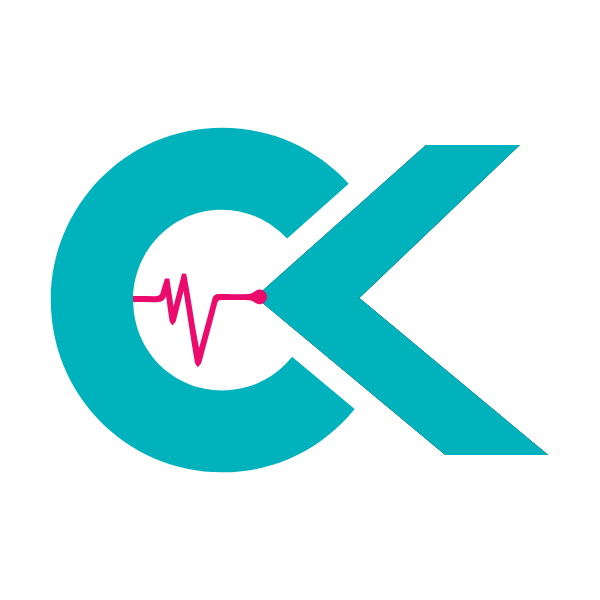Turkey has emerged as a global leader in medical tourism, particularly for plastic and obesity surgery. This prominence stems from a unique confluence of factors. The nation’s healthcare infrastructure consistently invests in cutting-edge technology and state-of-the-art facilities. Furthermore, Turkish surgeons are renowned for their extensive training and experience, often exceeding international benchmarks. For example, a significant portion of these specialists hold certifications from prestigious European and American boards. This commitment to excellence, coupled with strategic cost advantages, positions Turkey as a preferred destination. The economic benefits are particularly compelling, allowing for highly competitive pricing structures without compromising on quality of care. This robust ecosystem has demonstrably contributed to Turkey’s high success rates in these complex surgical fields.
Table of Contents
Why Is Treatment in Turkey More Affordable Without Sacrificing Quality?
The main reason why plastic surgery and obesity surgery in Turkey are cheaper yet more successful than in many Western countries stems from fundamental economic advantages that benefit international patients without compromising medical standards.
Key Economic Factors Making Surgery Affordable
Several structural elements contribute to why surgery cheaper turkey compared to Western alternatives:
- Lower operating costs turkey surgery due to reduced facility rental expenses and administrative overhead
- Cost of living turkey surgery advantages, where medical professionals command competitive salaries while maintaining lower operational expenses
- Currency exchange rate benefits that provide international patients with significant purchasing power advantages
- Streamlined administrative processes that eliminate excessive bureaucratic costs
- Competitive medical equipment procurement through strategic partnerships with global suppliers
- Reduced insurance and liability costs compared to Western healthcare systems
Economic Comparison: Turkey vs. International Markets
Understanding why plastic surgery cheap turkey requires examining the broader economic landscape that international medical facilities operate within.
| Cost Category | Turkey | UK/US | Savings Percentage |
|---|---|---|---|
| Surgeon Fees | £2,000-4,000 | £8,000-15,000 | 60-70% |
| Facility Costs | £500-800 | £2,000-3,500 | 70-75% |
| Accommodation | £30-80/night | £150-300/night | 75-80% |
| Total Package | £3,500-6,000 | £12,000-25,000 | 65-75% |
The cheap liposuction turkey reason extends beyond simple cost comparisons. Turkish medical facilities leverage economies of scale through high patient volumes, enabling them to maintain premium equipment and expertise while distributing fixed costs across larger patient bases.
Currency and Market Dynamics
The Turkish Lira’s exchange rate creates substantial advantages for patients holding stronger currencies. This monetary differential allows international patients to access premium medical services at fraction of home country costs. Medical facilities strategically price services to remain competitive globally while ensuring sustainable profit margins within the domestic economy.
Turkish healthcare providers optimize resource allocation through efficient supply chain management and strategic vendor relationships. These partnerships enable bulk purchasing agreements for medical supplies and equipment, reducing per-procedure costs significantly. The resulting savings transfer directly to patients seeking cosmetic and bariatric procedures.
Operational Efficiency Advantages
Turkish medical tourism facilities implement lean operational models that eliminate unnecessary administrative layers. Digital health records, streamlined patient processing systems, and integrated care pathways reduce overhead expenses while maintaining comprehensive patient care standards. These efficiency gains contribute to overall cost reductions without affecting treatment quality or safety protocols. Cosmetic Surgery Safety Costs Recovery is the main reason why plastic surgery and obesity surgery in Turkey are cheaper yet more successful than in many other countries. This approach allows Turkey’s healthcare system to provide high-quality medical procedures at competitive prices, attracting international patients seeking affordable and effective treatment options.
How Government Incentives and Healthcare Policies Support Medical Tourism in Turkey
- Thermal Tourism Authorization Program provides comprehensive licensing framework for health tourism facilities, ensuring regulatory compliance across medical establishments and wellness centers
- Investment Incentive Certificates offer reduced corporate tax rates of 10% for qualified medical tourism investments, compared to standard 25% corporate taxation
- Free Zone Designations in Istanbul, Ankara, and Antalya enable duty-free imports of medical equipment and pharmaceuticals for healthcare facilities serving international patients
- Ministry of Health Accreditation Scheme establishes standardized quality benchmarks through Joint Commission International partnerships, enhancing institutional credibility
- Facilitated Visa Processing through Health Tourism Authorization Document allows expedited medical visa applications processed within 48 hours for treatment-seeking patients
- Currency Exchange Incentives permit healthcare facilities to maintain foreign currency accounts, protecting against exchange rate fluctuations while accepting international payments
- Public-Private Partnership Framework encourages collaboration between state hospitals and private healthcare providers, expanding treatment capacity and service diversification
- Research and Development Tax Credits provide up to 200% deduction for medical technology innovations, fostering advancement in treatment methodologies and diagnostic capabilities
- Infrastructure Development Grants support construction of specialized medical complexes and rehabilitation centers through subsidized lending programs
- Professional Licensing Reciprocity streamlines credential recognition for international medical professionals, addressing skilled workforce requirements in specialized treatment areas
- Export Promotion Incentives classify medical services as export activities, qualifying facilities for preferential financing rates and promotional support through Turkish Export Credit Bank
- Digital Health Platform Integration mandates electronic health record systems compatible with international standards, ensuring seamless patient data management and continuity of care
- Quality Assurance Mandates require continuous professional development for medical staff treating international patients, maintaining competitive service standards
- Marketing Support Programs provide co-financing for international healthcare exhibitions and digital marketing campaigns targeting key source countries
- Customs Facilitation Measures expedite clearance procedures for medical supplies and equipment imports, reducing operational delays and associated costs for healthcare providers
These comprehensive policy measures position Turkey’s medical tourism sector as a globally competitive destination, attracting over 1.2 million international patients annually while generating substantial foreign exchange earnings for the national economy.
The Impact of Advanced Medical Training and High-Quality Standards in Turkey
Turkey’s medical education system establishes rigorous foundations that directly influence the exceptional standards maintained across the country’s healthcare facilities. These comprehensive training protocols ensure international patients receive treatment from highly qualified medical professionals.
- Six-year medical degree programmes at accredited universities incorporate European Medical Education standards and international curriculum frameworks
- Mandatory residency training spanning 4-6 years in specialised fields, with structured rotations across multiple hospital departments
- Continuous medical education requirements mandating 40 hours annually for license renewal and professional development
- Board certification examinations administered by the Turkish Medical Association ensuring competency verification
- International fellowship programmes enabling Turkish physicians to train at renowned medical centres worldwide
- Language proficiency requirements in English for medical tourism-designated hospitals and specialist practitioners
- Joint Commission International (JCI) accreditation held by over 50 Turkish healthcare facilities, representing the highest global quality standards
- ISO 9001 quality management systems implementation across major medical tourism destinations
- Regular auditing processes conducted by international healthcare assessment organisations
- Stringent infection control protocols exceeding World Health Organization recommendations
- Advanced medical technology integration requirements for accredited facilities
- Patient safety reporting systems aligned with international best practices
Turkish medical specialists demonstrate exceptional expertise through additional professional qualifications that distinguish them in the global healthcare landscape. Many leading physicians hold dual certifications from both Turkish medical boards and prestigious international institutions. Cardiovascular surgeons frequently complete fellowships at renowned centres such as Mayo Clinic or Cleveland Clinic, while plastic surgeons often pursue advanced training in South Korea or Germany.
The country’s quality assurance framework encompasses comprehensive peer review processes, where medical outcomes undergo systematic evaluation by independent expert panels. Mortality and morbidity conferences occur weekly across major hospitals, ensuring continuous improvement in clinical practices. These rigorous oversight mechanisms have contributed to Turkey achieving infection rates below European Union averages in cardiac surgery and organ transplantation procedures.
Furthermore, Turkish medical institutions maintain active research collaborations with leading international universities, fostering innovation and knowledge exchange. This academic engagement ensures practitioners remain current with cutting-edge treatment methodologies and emerging medical technologies, directly benefiting international patients seeking advanced healthcare solutions.




